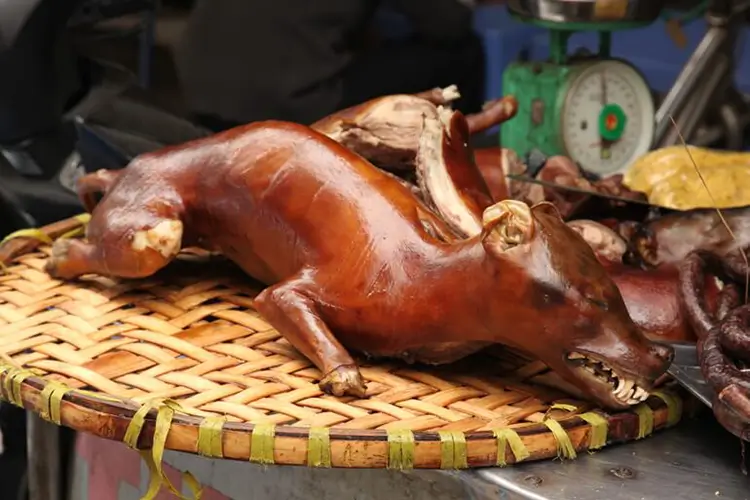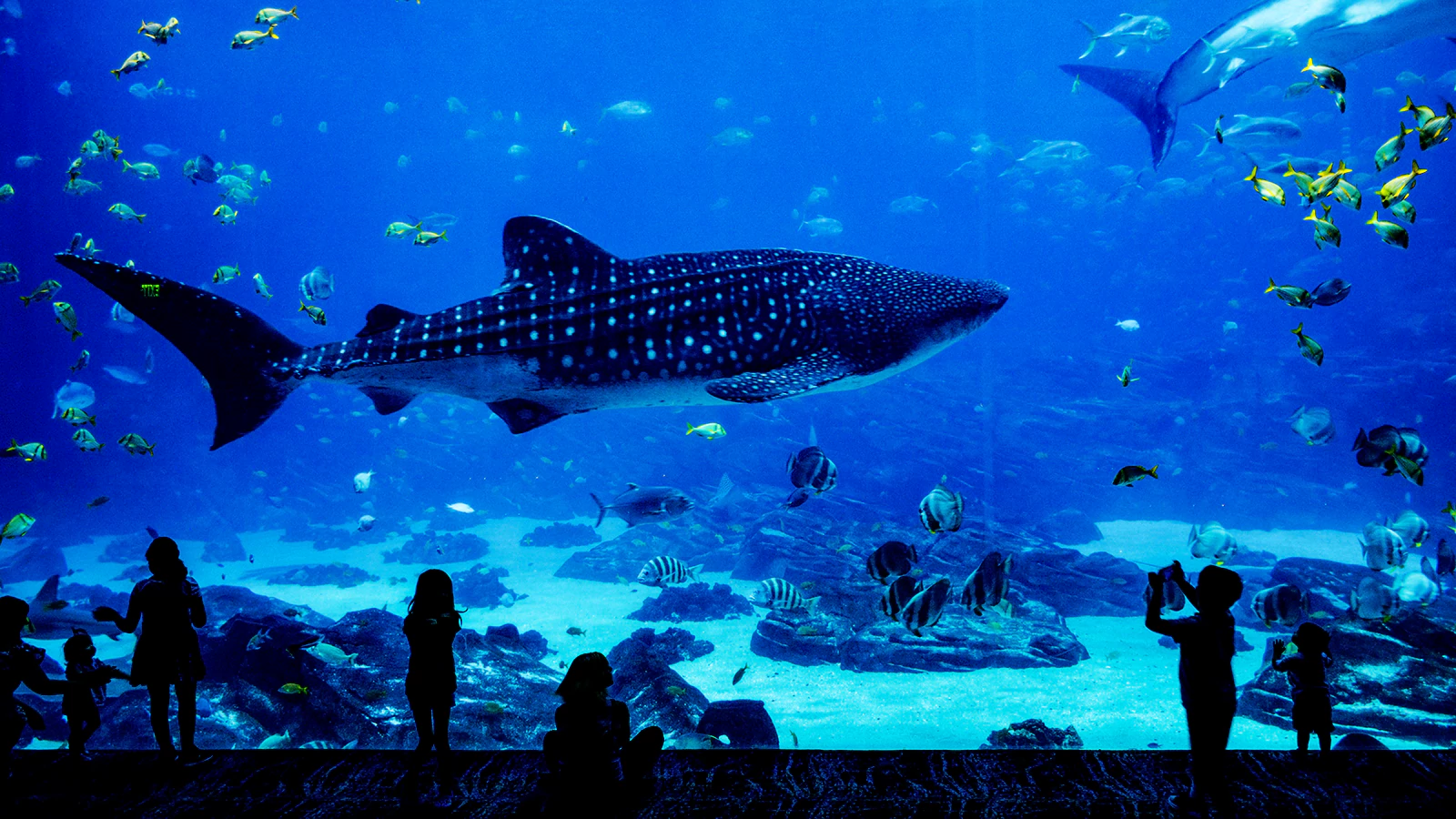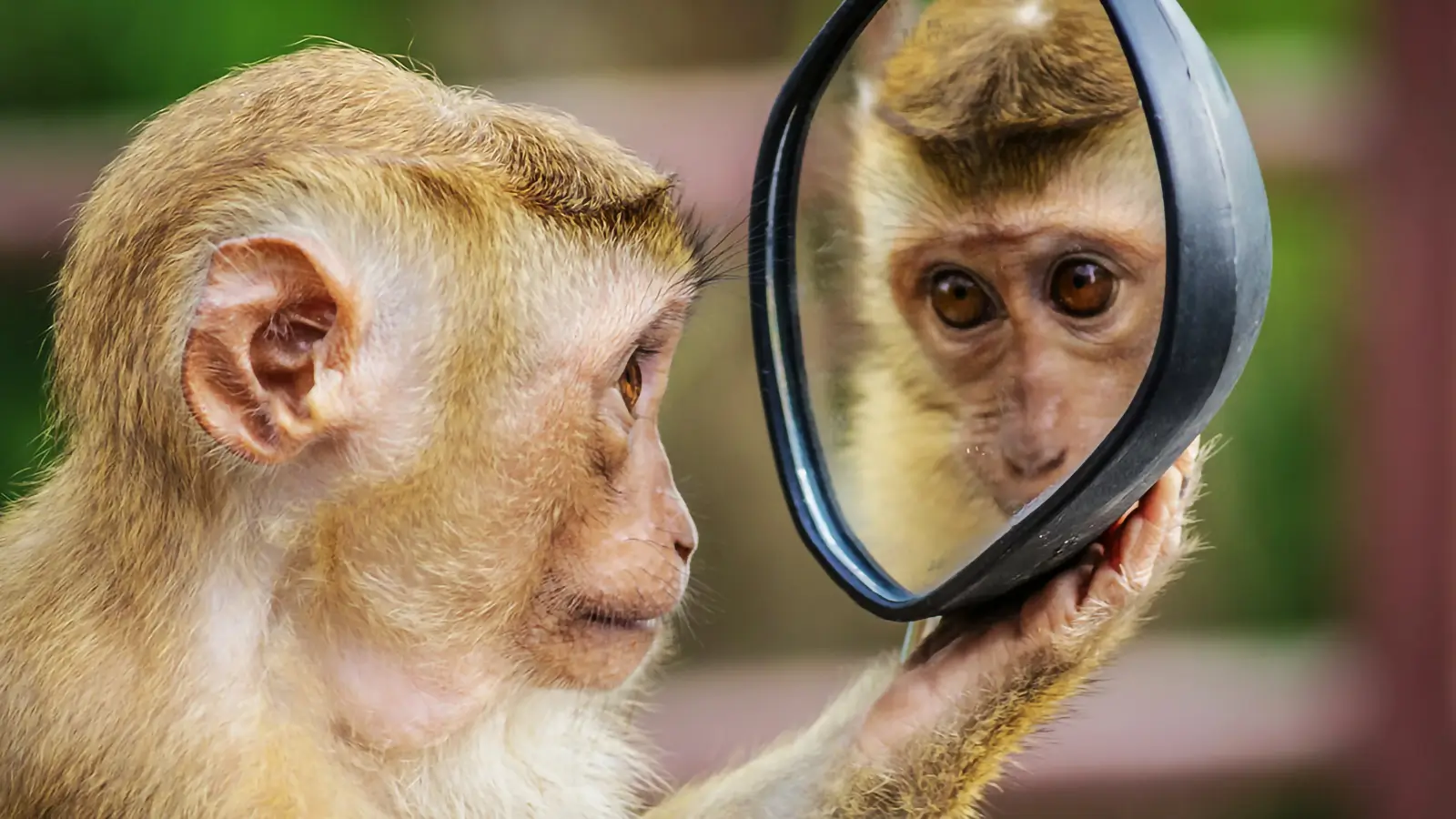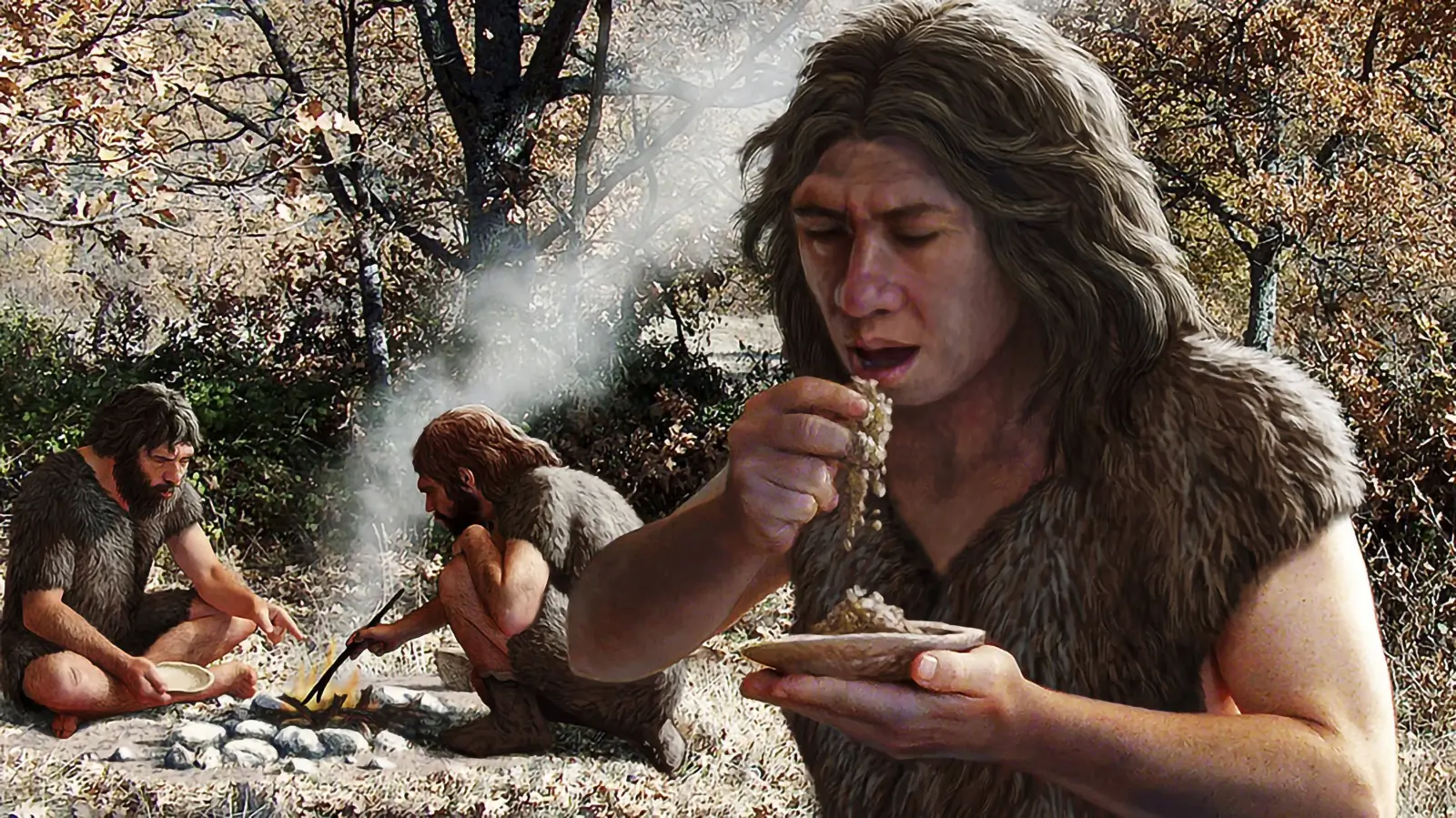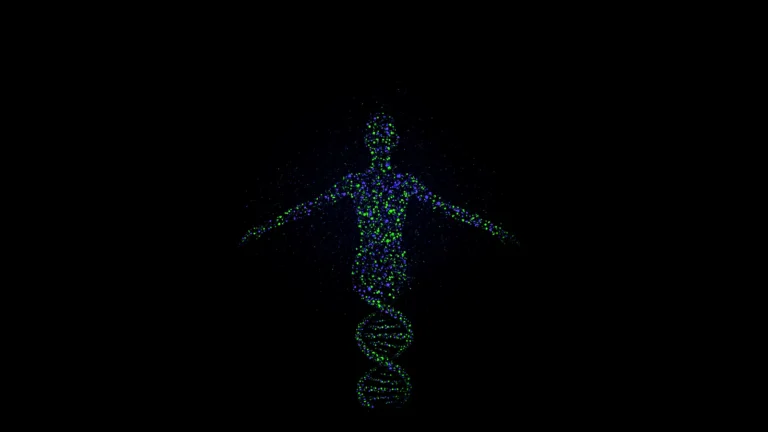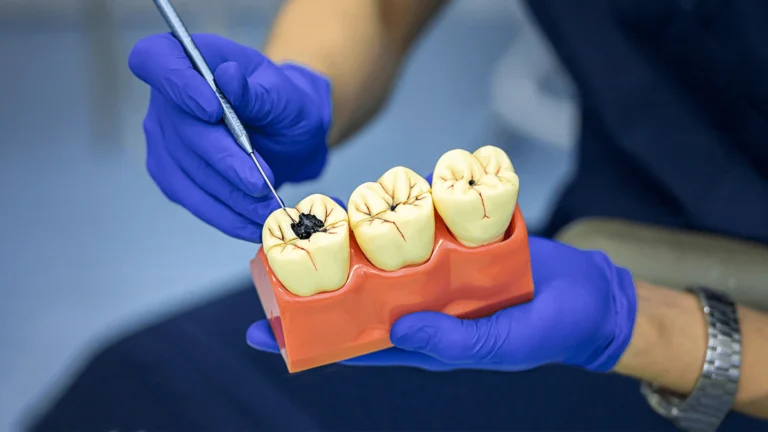Carnisme- La Psychologie de la Consommation de Viande
La consommation de viande ou le carnisme est la culture qui s'apprend. Les carnivores mangeraient n'importe quelle viande, quelle qu'elle soit. Nous ne mangerions que quelques animaux que nous considérons comme de la nourriture.
Milos Pokimica
Écrit par : Milos Pokimica
Examiné Médicalement Par : Dr. Xiùying Wáng, M.D.
Mis à jour le 7 mai 2023Le carnisme est un mot que Melanie Joy, Ph.D. utilisé pour définir le système de valeurs et les normes qui définissent la culture dominante de la consommation de viande. La consommation de viande ou le carnisme est la culture qui s'apprend.
Les vrais carnivores mangeraient n'importe quelle viande, quelle qu'elle soit. Dans notre système, nous ne mangerions que quelques animaux que nous considérons comme de la nourriture. Par exemple, mangeriez-vous votre chien? L'intelligence moyenne du cochon est celle d'un enfant de 3 ans, et le cochon est plus intelligent que le chien. Le porc est un animal très intelligent. Pensons-nous que la viande de chien n'a pas bon goût? En Chine, par exemple, on mange du chien.
Alors pourquoi ne les mangeons-nous pas ? Pourquoi pas la viande humaine ? Pensons-nous que la viande humaine n'a pas bon goût ? Comme l'a dit Alexander Pearce, un condamné irlandais connu pour avoir cannibalisé ses compagnons d'évasion :
“La chair de l'homme est délicieuse, elle a bien meilleur goût que le poisson ou le porc.”
Sinon, que diriez-vous de ceci:
“C'était comme du bon veau pleinement développé, pas jeune, mais pas encore de la viande de bœuf. C'était vraiment comme ça, et ça ne ressemblait à aucune autre viande que j'avais jamais goûtée... C'était une viande douce et bonne, sans aucun autre goût nettement défini ou très caractéristique comme celui, par exemple, de la chèvre, du grand gibier et du porc.”
- William Seabrook, un explorateur qui a mangé un rumsteck humain lors d'un voyage en Afrique de l'Ouest.
Plus récemment, le présentateur scientifique Greg Foot a tenté de percer le secret du goût de la chair humaine lors d'une expérience menée avec BritLab pour la BBC. Malheureusement, il est illégal de manger sa propre chair. Sachant que c'est illégal, l'objectif final était d'expérimenter une certaine ressemblance avec le goût. Ils ont effectué une biopsie du muscle de la jambe de Greg et se sont contentés de l'arôme de sa chair cuite. L'arôme de la chair peut représenter jusqu'à 80 % de notre sensation de goût. Ils ont placé la viande humaine cuite dans une machine d'analyse d'arômes et ont procédé à un test olfactif. Selon Greg, le muscle de sa jambe sentait le ragoût de bœuf. L'analyse du muscle de la jambe a montré que sa composition est très similaire à celle du poulet et du bœuf. Il représente environ la moitié du muscle que l'on trouve dans le blanc de poulet et possède des fibres musculaires similaires à celles que l'on trouve dans les morceaux de bœuf. Finalement, ils ont créé un mélange de viande hachée de différents animaux pour recréer les fibres trouvées dans la biopsie de sa jambe et ont fabriqué un faux hamburger humain.
Le cannibalisme est largement documenté dans le monde entier, du bassin amazonien au Congo, en passant par les îles Fidji et les Maoris de Nouvelle-Zélande. Il ne s'agit pas d'une invention moderne et, dans certaines cultures, il est normal. Il existe également un cannibalisme rituel cérémoniel. Dans le monde moderne, il était encore pratiqué en Papouasie-Nouvelle-Guinée en 2018 dans le cadre de rituels cérémoniels et de cérémonies de guerre au sein de diverses tribus mélanésiennes. On pense que les Néandertaliens ont pratiqué le cannibalisme. Les humains anatomiquement modernes pourraient également avoir mangé des Néandertaliens.
Dans les petites exploitations, l'abattage se fait toujours à mains nues, sans anesthésie. Il en va de même pour tout autre animal. Les poussins mâles ne pondent pas d'œufs et ne grandissent pas assez vite. Après l'éclosion, ils sont donc sélectionnés et passés dans une machine à broyer alors qu'ils sont encore vivants. Les femelles sont envoyées dans une lame chauffante pour enlever une partie de leur bec. Après le débecquage, les oiseaux sont placés dans des cages où ils passeront le reste de leur vie confinés dans des espaces minuscules. En raison de l'élevage sélectif, ils sont devenus si gros si rapidement que beaucoup d'entre eux souffrent de troubles invalidants des pattes et de douleurs articulaires chroniques. Au moment de l'abattage, les oiseaux végétaux sont attachés par les pattes à des chaînes mobiles, la tête en bas, puis tirés sur une lame qui leur tranche la gorge.
La vérité est que nous ne nous soucions pas vraiment ou ne le ferions jamais. Les humains ont une empathie sélective. Nous pouvons nous sentir mal pour les chiens mais pas pour les cochons.
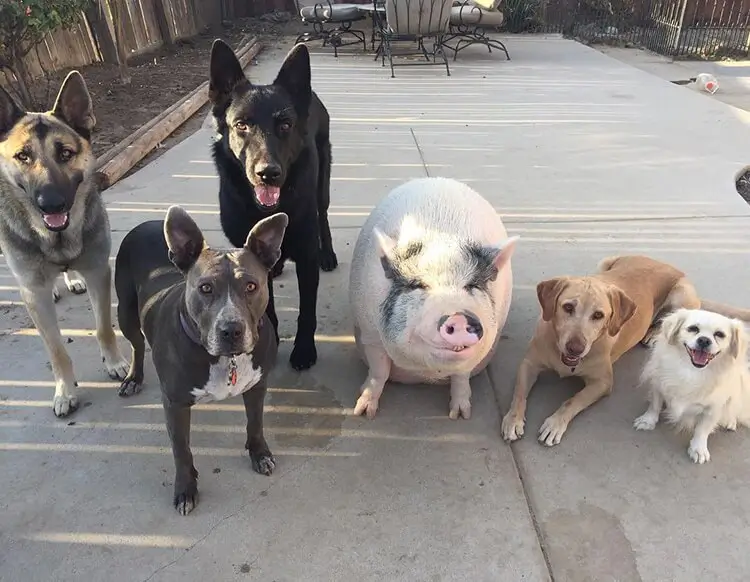
Le Dr Melanie Joy appelle cela un vide dans notre conscience, le bloc de conscience. Une forme de déni ou de mécanisme d'autodéfense.
Elle parle de trois fins de justification. Manger de la viande est sain, normal et nécessaire.
Cependant, ce que nous considérons comme normal n'est que la structure sociale de la culture dominante. Pendant la majeure partie de l'existence humaine, l'esclavage était normal, naturel et nécessaire. Même dans l'Europe chrétienne du Moyen Âge, avec l'inquisition, l'esclavage était normal et naturel. La traite des esclaves était même nécessaire à l'économie des territoires nouvellement acquis dans le nouveau monde. Il n'y a que des "sauvages" qui courent nus. Pendant la plus grande partie de l'histoire de l'humanité, courir nu était naturel. C'est ce qu'on appelle la conscience sélective.
L'habillement est également une invention moderne. Ce qui est naturel représente également l'interprétation culturelle dominante de l'histoire. Le meurtre, le viol, l'infanticide, l'avortement et le sacrifice d'enfants étaient tout à fait naturels pendant la majeure partie de l'histoire de l'humanité.
Les schémas de comportement sont généralement les mêmes et ne changent pas. Seule la conscience sélective change pour justifier le comportement.
Enfin, au cas où vous auriez l'idée de sauver des porcelets, sachez qu'aujourd'hui, il ne s'agit pas seulement d'entrer par effraction et de voler. En 2008, le FBI a écrit: "Ensemble, les écoterroristes et les extrémistes des droits des animaux constituent l'une des plus sérieuses menaces de terrorisme intérieur aux États-Unis aujourd'hui". Les États-Unis sont tellement préoccupés par l'extrémisme des droits des animaux qu'ils disposent d'une législation spécifique: L'Animal Enterprise Terrorism Act (AETA). Aucun autre acte terroriste ne cible une idéologie spécifique.
De nombreux membres de la communauté végane estiment que le traitement des animaux est une question de justice sociale. C'est exactement ce qu'enseigne, par exemple, le Dr Melanie Joy dans ses conférences. Le problème est que la justice dépend de notre perception des normes. Plus nous apprendrons, plus nous comprendrons la nature de l'existence humaine. Et il n'y a rien de mal à cela. L'existentialisme est la force qui anime tous les animaux et l'évolution. L'auto-préservation, l'intérêt personnel, quoi qu'il arrive.
Ce que certaines personnes issues des communautés végétaliennes ne comprennent pas, c'est que la conscience sélective n'est pas seulement un mécanisme de défense. Il s'agit d'un instinct de conservation subconscient et évolutif.
La seule raison pour laquelle, par exemple, nous ne mangeons pas les chiens n'est pas que nous avons appris culturellement à ne pas le faire, mais parce que nous avions davantage besoin d'eux vivants. Il s'agit là encore d'intérêt personnel. Nous avons utilisé les chiens pour chasser afin d'attraper d'autres animaux, et nous les avons utilisés comme une sorte de système d'alarme primitif. Ils aboient lorsqu'un ours, un loup, un autre humain ou Neandertal pénètre sur notre territoire, car les loups sont des animaux territoriaux et les chiens font désormais partie de la meute humaine.
Si nous avons tendance à ne pas manger les chats, ce n'est pas parce que nous l'avons appris culturellement. C'est parce qu'ils constituent une forme primitive de lutte contre les nuisibles. Les chats ayant tendance à manger les rats, il était plus avantageux de les domestiquer que de les manger. Avec le temps, un comportement se fond dans notre culture et s'intègre dans les normes sociales. La même raison pour laquelle nous n'aimons pas les cochons est qu'ils n'aboient pas, qu'ils n'attrapent pas les rats et qu'ils ne font rien. Ils ne nous apportent rien, ils sont "stupides" et nous allons les manger. Si nous essayons de les traire, ce ne sera pas bon non plus parce qu'ils sont relativement petits. Les bovins, en revanche, sont plus gros, donc pas de lait de porc pour nous.
La seule raison pour laquelle nous avons une civilisation est que les hominidés primitifs comme l'Homo erectus avaient plus d'avantages à coopérer qu'à vivre seuls comme des loups solitaires. Les hominiens avaient également des communautés parce qu'elles étaient bénéfiques pour l'individu. Même un mâle bêta tolérera le mâle alpha, non pas parce que cela lui fait du bien d'être battu, mais parce qu'il est plus avantageux pour lui d'être bêta que de devenir un loup solitaire et de mourir. Tout ce qui a été fait par un animal, y compris l'homme, se résume à l'instinct de conservation et à l'existentialisme. Et puis cela est devenu une partie des normes culturelles.
Références :
Passages sélectionnés à partir d'un livre : Pokimica, Milos. Devenir vegetarien? Examen de la science, partie 1. Kindle éd., Amazone, 2018.
Articles Similaires
Vous avez des questions sur la nutrition et la santé ?
J'aimerais avoir de vos nouvelles et y répondre dans mon prochain post. J'apprécie votre contribution et votre opinion et j'ai hâte d'avoir de vos nouvelles bientôt. Je vous invite également à nous suivre sur Facebook, Instagram et Pinterest pour plus de contenu sur l'alimentation, la nutrition et la santé. Vous pouvez y laisser un commentaire et entrer en contact avec d'autres passionnés de santé, partager vos conseils et expériences, et obtenir le soutien et les encouragements de notre équipe et de notre communauté.
J'espère que ce billet a été instructif et agréable pour vous et que vous êtes prêt à mettre en pratique les connaissances que vous avez acquises. Si vous avez trouvé ce billet utile, veuillez le partager à vos amis et à votre famille qui pourraient également en bénéficier. On ne sait jamais qui peut avoir besoin de conseils et de soutien dans son parcours de santé.
– Vous pourriez aussi aimer –

Apprendre la Nutrition
Milos Pokimica est docteur en médecine naturelle, nutritionniste clinique, rédacteur en santé médicale et nutrition et conseiller en sciences nutritionnelles. Auteur de la série de livres Devenir vegetarien ? Examen des sciences, il exploite également le site Web de santé naturelle GoVeganWay.com
Avis de non-responsabilité médicale
GoVeganWay.com vous propose des critiques des dernières recherches liées à la nutrition et à la santé. Les informations fournies représentent l'opinion personnelle de l'auteur et ne sont pas destinées ni implicitement à remplacer un avis médical professionnel, un diagnostic ou un traitement. Les informations fournies sont fournies à titre informatif uniquement et ne sont pas destinées à remplacer la consultation, le diagnostic et/ou le traitement médical d'un médecin ou d'un prestataire de soins de santé qualifié.NE JAMAIS IGNORER LES CONSEILS MÉDICAUX PROFESSIONNELS OU RETARDER LA RECHERCHE DE SOINS MÉDICAUX EN RAISON DE QUELQUE CHOSE QUE VOUS AVEZ LU OU ACCÉDÉ SUR GoVeganWay.com
N'APPLIQUEZ JAMAIS DE CHANGEMENTS AU STYLE DE VIE OU TOUT CHANGEMENT À LA SUITE DE QUELQUE CHOSE QUE VOUS AVEZ LU SUR GoVeganWay.com AVANT DE CONSULTER UN PRATICIEN MÉDICAL AGRÉÉ.
En cas d'urgence médicale, appelez immédiatement un médecin ou le 911. GoVeganWay.com ne recommande ni n'approuve aucun groupe, organisation, test, médecin, produit, procédure, opinion ou autre information spécifique pouvant être mentionné à l'intérieur.
Choix de l'éditeur -
Milos Pokimica est rédacteur spécialisé dans la santé et la nutrition et conseiller en sciences nutritionnelles. Auteur d'une série de livres Devenir vegetarien ? Examen des sciences, il exploite également le site Web de santé naturelle GoVeganWay.com
Derniers articles –
Top Des Nouvelles Sur la Santé - ScienceDaily
- The overlooked nutrition risk of Ozempic and Wegovyle février 4, 2026
Popular weight-loss drugs like Ozempic and Wegovy can dramatically curb appetite, but experts warn many users are flying blind when it comes to nutrition. New research suggests people taking these medications may not be getting enough guidance on protein, vitamins, and overall diet quality, increasing the risk of muscle loss and nutrient deficiencies.
- A 25-year study found an unexpected link between cheese and dementiale février 4, 2026
A massive Swedish study tracking nearly 28,000 people for 25 years found an unexpected link between full-fat dairy and brain health. Among adults without a genetic risk for Alzheimer’s, eating more full-fat cheese was associated with a noticeably lower risk of developing the disease, while higher cream intake was tied to reduced dementia risk overall. The findings challenge decades of low-fat dietary advice but come with important caveats.
- MIT’s new brain tool could finally explain consciousnessle février 4, 2026
Scientists still don’t know how the brain turns physical activity into thoughts, feelings, and awareness—but a powerful new tool may help crack the mystery. Researchers at MIT are exploring transcranial focused ultrasound, a noninvasive technology that can precisely stimulate deep regions of the brain that were previously off-limits. In a new “roadmap” paper, they explain how this method could finally let scientists test cause-and-effect in consciousness research, not just observe […]
- Why heart disease risk in type 2 diabetes looks different for men and womenle février 4, 2026
Scientists are digging into why heart disease risk in type 2 diabetes differs between men and women—and sex hormones may be part of the story. In a large Johns Hopkins study, men with higher testosterone had lower heart disease risk, while rising estradiol levels were linked to higher risk. These hormone effects were not seen in women. The results point toward more personalized approaches to heart disease prevention in diabetes.
- Sound machines might be making your sleep worsele février 4, 2026
Sound machines may not be the sleep saviors many believe. Researchers found that pink noise significantly reduced REM sleep, while simple earplugs did a better job protecting deep, restorative sleep from traffic noise. When pink noise was combined with outside noise, sleep quality dropped even further. The results suggest that popular “sleep sounds” could be doing more harm than good—particularly for kids.
- This unexpected plant discovery could change how drugs are madele février 3, 2026
Plants make chemical weapons to protect themselves, and many of these compounds have become vital to human medicine. Researchers found that one powerful plant chemical is produced using a gene that looks surprisingly bacterial. This suggests plants reuse microbial tools to invent new chemistry. The insight could help scientists discover new drugs and produce them more sustainably.
- A hidden cellular process may drive aging and diseasele février 3, 2026
As we age, our cells don’t just wear down—they reorganize. Researchers found that cells actively remodel a key structure called the endoplasmic reticulum, reducing protein-producing regions while preserving fat-related ones. This process, driven by ER-phagy, is tied to lifespan and healthy aging. Because these changes happen early, they could help trigger later disease—or offer a chance to stop it.
PubMed, #régime-vegan –
- Diet type and the oral microbiomele février 2, 2026
CONCLUSION: The diet-oral microbiome-systemic inflammation axis is bidirectional and clinically relevant. Understanding both direct ecological regulation and indirect metabolic effects is essential to support precision nutrition strategies aimed at maintaining oral microbial balance and systemic inflammatory risk mitigation.
- Consensus document on healthy lifestylesle janvier 22, 2026
Proteins are a group of macronutrients that are vital to our lives, as they perform various functions, including structural, defensive and catalytic. An intake of 1.0-1.2 g/kg/body weight per day would be sufficient to meet our needs. Carbohydrate requirements constitute 50 % of the total caloric value and should be obtained mainly in the form of complex carbohydrates. In addition, a daily intake of both soluble and insoluble fiber is necessary. Regular consumption of extra virgin olive oil […]
- Vitamin B12 and D status in long-term vegetarians: Impact of diet duration and subtypes in Beijing, Chinale janvier 21, 2026
CONCLUSIONS: This study reveals a dual challenge among Beijing long-term vegetarians: vitamin B12 deficiency was strongly associated with the degree of exclusion of animal products from the diet (veganism), while vitamin D deficiency was highly prevalent and worsened with longer diet duration. The near-universal vitamin D deficiency observed in this study suggests that, in the Beijing context, the risk may extend beyond dietary choice, potentially reflecting regional environmental factors;…
- Nutritional evaluation of duty meals provided to riot police forces in Germanyle janvier 13, 2026
Background: The primary role of the German riot police is maintaining internal security. Due to challenging working conditions, riot police forces face an elevated risk of various diseases. During duty, forces are provided with meals. A balanced diet can reduce the risk of some of these diseases and contribute to health-promoting working conditions. Aim: First evaluation of the nutritional quality of duty meals in Germany based on German Nutrition Society recommendations (DGE). Methods: In…
- Iodinele janvier 1, 2006
Iodine is an essential trace nutrient for all infants that is a normal component of breastmilk. Infant requirements are estimated to be 15 mcg/kg daily in full-term infants and 30 mcg/kg daily in preterm infants.[1] Breastmilk iodine concentration correlates well with maternal urinary iodine concentration and may be a useful index of iodine sufficiency in infants under 2 years of age, but there is no clear agreement on a value that indicates iodine sufficiency, and may not correlate with […]
Messages aléatoires –
Postes en vedette -
Dernières Nouvelles de PubMed, #alimentation végétale –
- From paddy soil to dining table: biological biofortification of rice with zincpar Lei Huang le février 4, 2026
One-third of paddy soils are globally deficient in zinc (Zn) and 40% of Zn loss in the procession from brown rice to polished rice, which results in the global issue of hidden hunger, e.g., the micronutrient deficiencies in the rice-based population of developing countries. In the recent decades, biofortification of cereal food crops with Zn has emerged as a promising solution. Herein, we comprehensively reviewed the entire process of Zn in paddy soil to human diet, including the regulatory…
- Molecular Characterization of Tobacco Necrosis Virus A Variants Identified in Sugarbeet Rootspar Alyssa Flobinus le février 3, 2026
Sugarbeet provides an important source of sucrose; a stable, environmentally safe, and low-cost staple in the human diet. Viral diseases arising in sugarbeet ultimately impact sugar content, which translates to financial losses for growers. To manage diseases and prevent such losses from occurring, it is essential to characterize viruses responsible for disease. Recently, our laboratory identified a tobacco necrosis virus A variant named Beta vulgaris alphanecrovirus 1 (BvANV-1) in sugarbeet…
- Nutrition in early life interacts with genetic risk to influence preadult behaviour in the Raine Studypar Lars Meinertz Byg le février 3, 2026
CONCLUSIONS: Nutrition in early life and psychiatric genetic risk may interact to determine lasting child behaviour. Contrary to our hypothesis, we find dietary benefits in individuals with lower ADHD PGS, necessitating replication. We also highlight the possibility of including genetics in early nutrition intervention trials for causal inference.
- Effect of the gut microbiota on insect reproduction: mechanisms and biotechnological prospectspar Dilawar Abbas le février 2, 2026
The insect gut microbiota functions as a multifunctional symbiotic system that plays a central role in host reproduction. Through the production of bioactive metabolites, gut microbes interact with host hormonal pathways, immune signaling, and molecular regulatory networks, thereby shaping reproductive physiology and fitness. This review summarizes recent advances in understanding how gut microbiota regulate insect reproduction. Accumulating evidence demonstrates that microbial metabolites…
- Rationale and design of a parallel randomised trial of a plant-based intensive lifestyle intervention for diabetes remission: The REmission of diabetes using a PlAnt-based weight loss InteRvention…par Brighid McKay le février 2, 2026
CONCLUSIONS: This trial will provide high-quality clinical evidence on the use of plant-based ILIs to address the epidemics of obesity and diabetes to inform public health policies and programs in Canada and beyond.
- Diet type and the oral microbiomepar Daniel Betancur le février 2, 2026
CONCLUSION: The diet-oral microbiome-systemic inflammation axis is bidirectional and clinically relevant. Understanding both direct ecological regulation and indirect metabolic effects is essential to support precision nutrition strategies aimed at maintaining oral microbial balance and systemic inflammatory risk mitigation.
